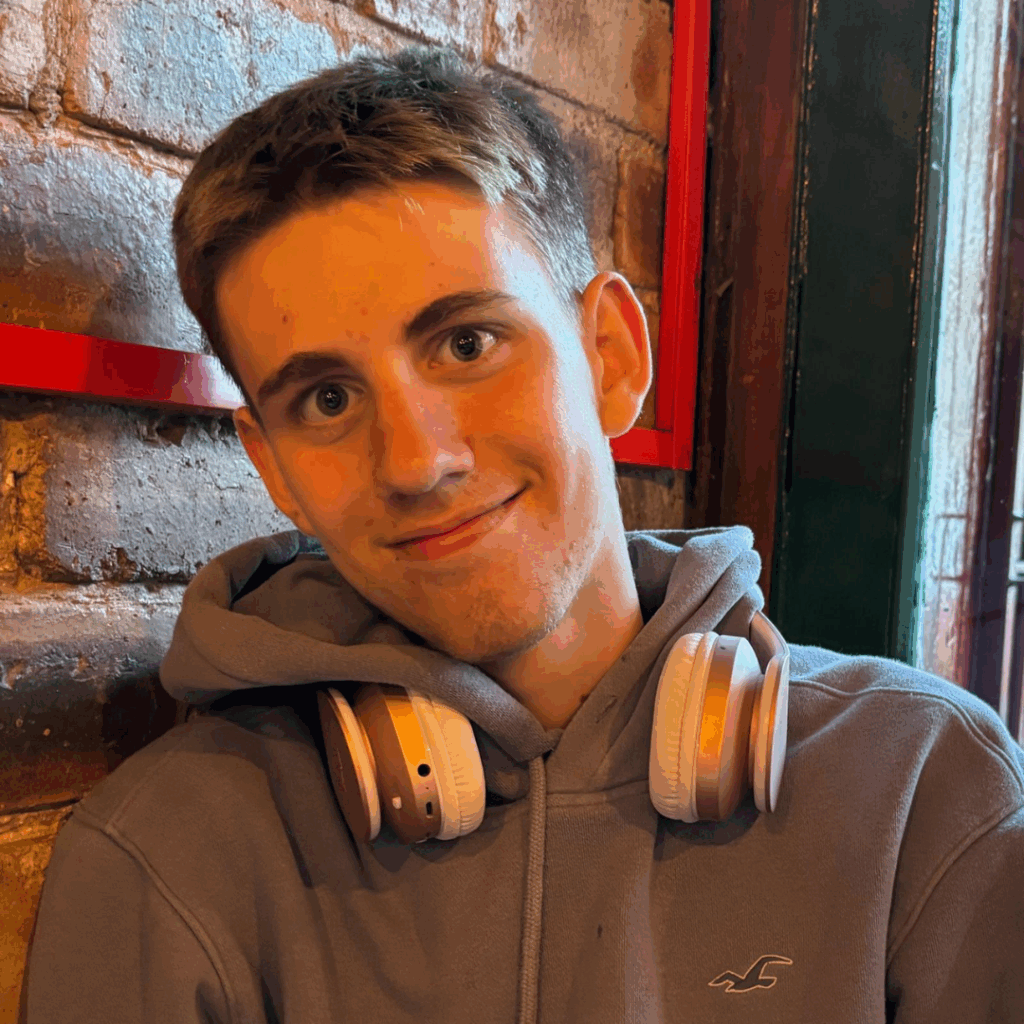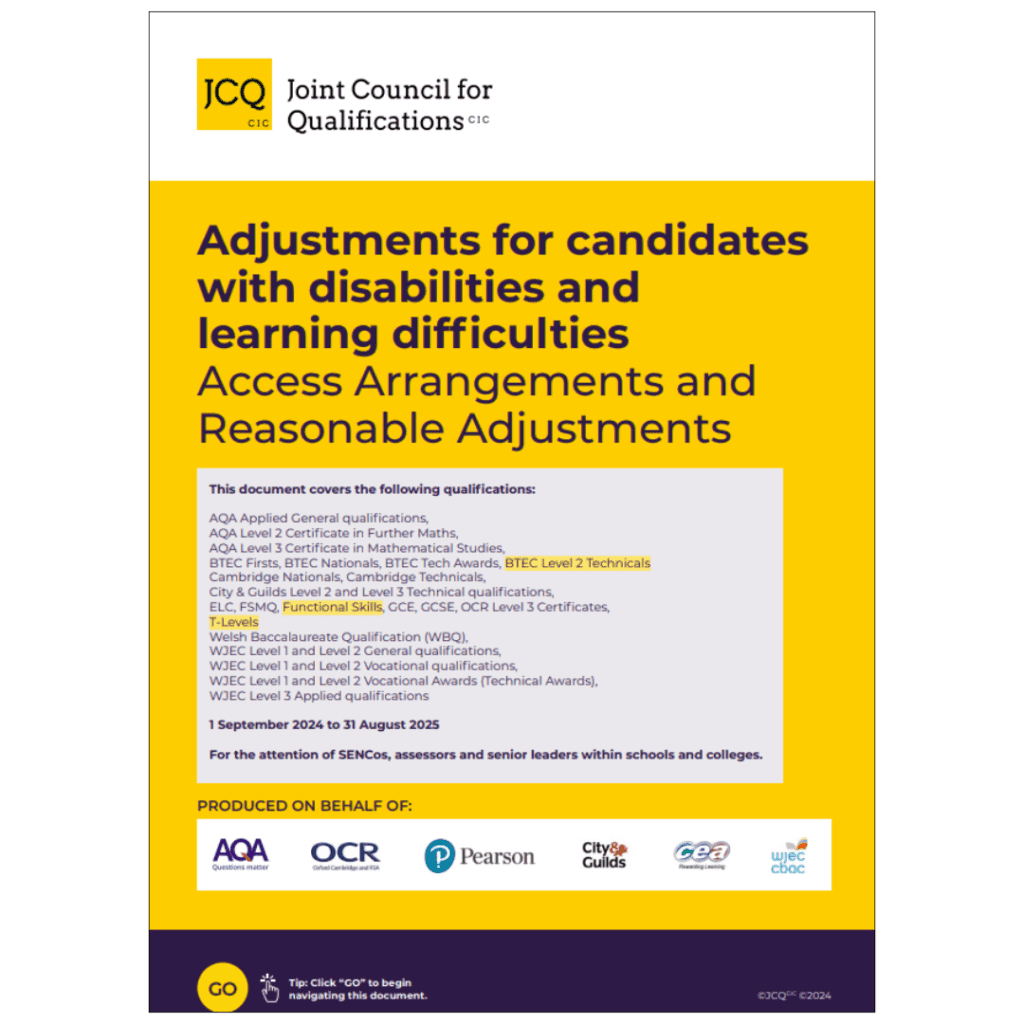Making Exams Accessible
My Journey with Access Arrangements as a Neurodivergent Learner
By Sacha, CENMAC Work Experience Student
GCSE exams can be challenging for anyone, but as a neurodivergent student, I often felt like I was being asked to run a race with my shoelaces tied together. It wasn’t the content that held me back – it was the way I was expected to access it. That all changed when I received Access Arrangements.
These aren’t special privileges – they’re supports that helped me finally show what I was capable of.
Access Arrangements are adjustments made to exam conditions so that people like me, who experience barriers to learning or processing, can take exams on fair terms. They’re designed to meet different kinds of needs – and the SEND Code of Practice (2015) helped me understand not just what support I could ask for, but that I was entitled to it.
My Needs: Cognition and Learning
I have difficulty with processing, organisation, and written expression (things that fall into the Cognition and Learning category). My handwriting was messy and hard to read and trying to organise my thoughts under time pressure felt almost impossible.
The support that helped me:
- A word processor (so I could actually read what I’d written!)
- A reader to help me process exam questions clearly
- A prompter to keep me on track when my thoughts started to wander
- Supervised rest breaks to regroup and self-regulate
These weren’t just helpful – they were transformative. With a word processor, for example, I finally had the space to show my ideas clearly and fluently. Now I’m waiting for results, yes – but I’m also holding something even more powerful than a grade: hope! And for me, that’s a massive step forward.
My Needs: Social, Emotional and Mental Health
As someone with ADHD, the traditional exam hall was a minefield. I couldn’t focus. My mind raced. The sensory overwhelm was constant, and I often felt like I was doing everything wrong.
What helped me here:
- Extra time so I didn’t have to rush through anxiety
- An alternative location that reduced distractions and helped me feel calm
Before these supports, I honestly thought I was just bad at exams. I’d get low grades – 2s, sometimes even lower – and walk away thinking I’d failed again. I didn’t feel seen or understood.
After I received Access Arrangements, I saw progress. Real, tangible progress. I didn’t just get higher marks; I felt better. I believed in myself. And for the first time, I knew that I wasn’t the problem – the system just needed to work with me, not against me.
Why This Matters
Access Arrangements changed everything for me. They didn’t erase the challenges I faced, but they acknowledged them – and that recognition made me feel validated, respected, and empowered.
These supports gave me the space to breathe, focus, and express my knowledge. They didn’t give me an “unfair advantage” – they gave me a fair chance. And that made all the difference.
During primary school, I was thriving. I had great friends, I was good at my classes, and I found myself laughing along with everyone and being genuinely happy. When the Pandemic hit, my happiness took a blow. Even though I couldn’t see my friends or do anything that meant leaving my household, my family still found a way to make it seem enjoyable.
Thanks to my parents, my family had created a system that allowed my sister and I to still have fun and to be happy even though the pandemic was still going on.
Even through the last bit of the first lockdown, I kept my happiness as I joined a bubble class for the remainder of it and was with most of my friends. When the second lockdown hit, my happiness was completely shattered.
The fun system that my family had made had been affected by the transition to secondary school and I was forced to stare at a screen for most of my year 7 journey. When the second lockdown was over and I went back to school, I noticed that things were different about myself.
I kept failing at my classes. I struggled to keep focus on tasks that really bored me. I kept losing things and forgetting supplies and I just couldn’t keep up. Everyone else was moving on to the next question and I was only starting the first. It felt like I was a guest in my own body.
That’s when I discovered that I had ADHD. The realisation hit me like a bullet. All the things that had happened were finally explained. The only problem was that the school I went to, had no way of helping neurodiverse students, so I continued to struggle.
It wasn’t until I had left that school for the BRIT School, when the possibility of access arrangements finally came out of hiding and presented itself to me. I was able to use arrangements such as, rest breaks and movement breaks (which helped with my ADHD) but also, I was granted a laptop which replaced handwriting everything with pen and paper (which helped with my Dyspraxia). Thanks to that, I will hopefully achieve the results that I feel I deserve.





